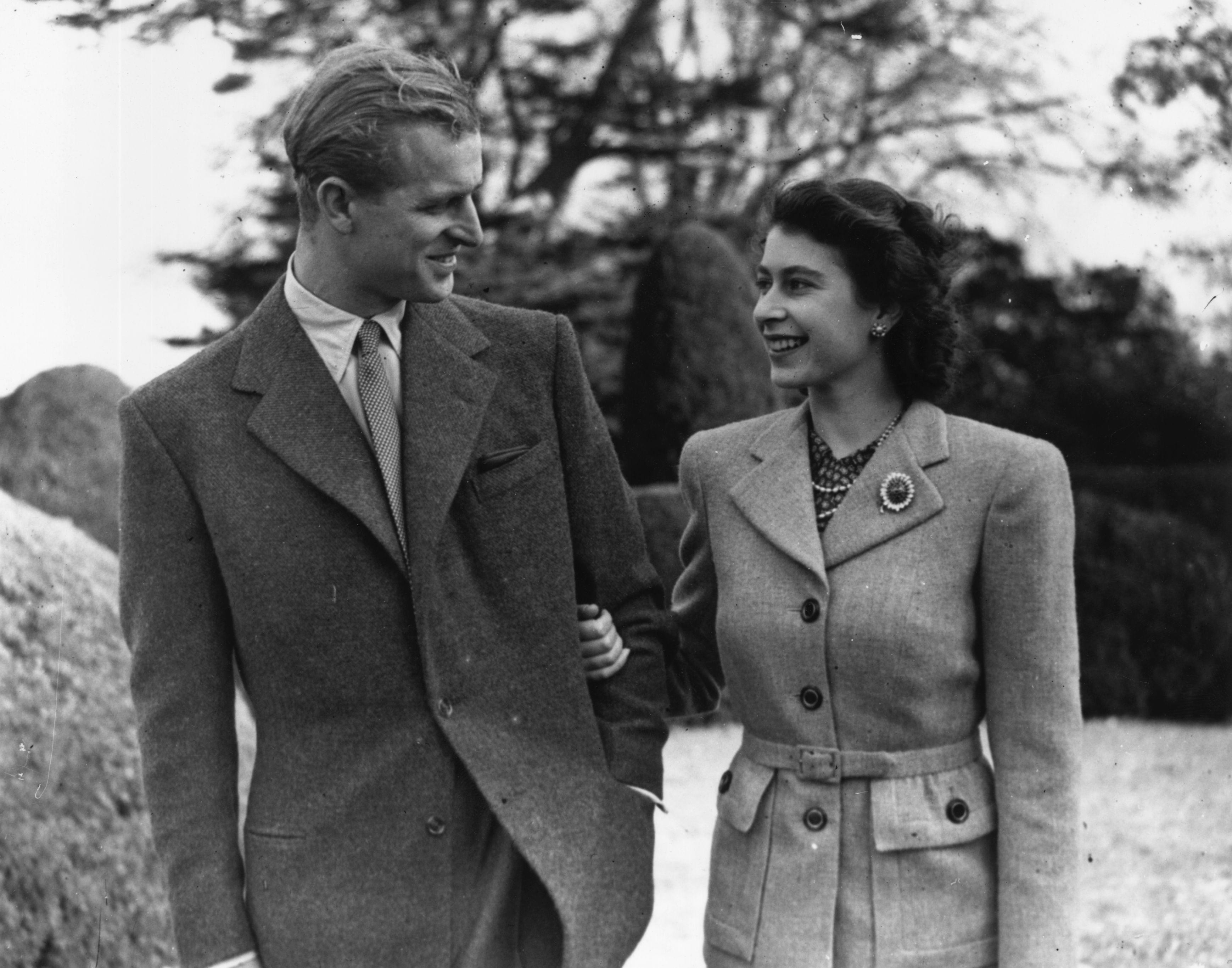For decades, the relationship between Prince Philip and Queen Elizabeth II has captivated the public imagination. Speculation about Prince Philip's alleged infidelity has persisted, raising questions about the stability of their marriage. But are these claims grounded in reality, or are they mere products of tabloid sensationalism? In this article, we explore the facts, debunk myths, and provide a comprehensive analysis of this royal controversy.
Prince Philip and Queen Elizabeth II's marriage stands as one of the longest royal unions in history, enduring for over seven decades. Despite their unwavering partnership, questions about Philip's fidelity have occasionally emerged in the media. To uncover the truth, it is essential to examine their relationship, the societal context of their era, and the role of tabloid journalism in shaping narratives.
This article will delve into the allegations of infidelity, scrutinize the evidence, and offer a balanced perspective. By the end, readers will gain a clearer understanding of whether Prince Philip's alleged infidelity holds water or if these claims are simply the result of media exaggeration.
Read also:Exploring The April 21 Zodiac Sign Taurus Personality Traits And Insights
Contents
- The Lives of Prince Philip and Queen Elizabeth II
- A Timeline of Their Marriage
- The Origins of Infidelity Allegations
- How Tabloids Shape Public Perception
- Navigating the Challenges of Royal Life
- Separating Fact from Fiction
- Insights from Historians and Royal Experts
- The Evolution of Public Opinion
- What We Can Learn from This Controversy
- Final Thoughts: The Truth Behind the Rumors
The Lives of Prince Philip and Queen Elizabeth II
To fully understand the allegations, it is vital to explore the backgrounds of Prince Philip and Queen Elizabeth II. Below is a detailed look at their early lives and the key events that shaped their destinies.
Prince Philip's Early Years
Prince Philip was born on June 10, 1921, on the island of Corfu, Greece. As the only son of Prince Andrew of Greece and Denmark and Princess Alice of Battenberg, his life was marked by turmoil from an early age. Political instability in Greece forced his family into exile when he was just a year old. Philip spent his formative years in France, Germany, and the United Kingdom before embarking on a distinguished career in the British Royal Navy, where he earned widespread respect for his dedication and leadership.
Queen Elizabeth II's Formative Years
Elizabeth Alexandra Mary was born on April 21, 1926, in London, England. Though not initially destined for the throne, her life took a dramatic turn when her uncle, King Edward VIII, abdicated. This event thrust her into the role of heir apparent. From a young age, Elizabeth embraced her responsibilities with grace and determination, eventually becoming a globally admired monarch known for her steadfast commitment to duty.
Biographical Overview
| Name | Prince Philip | Queen Elizabeth II |
|---|---|---|
| Birthdate | June 10, 1921 | April 21, 1926 |
| Birthplace | Corfu, Greece | London, England |
| Spouse | Queen Elizabeth II | Prince Philip |
| Children | Charles, Anne, Andrew, Edward | Charles, Anne, Andrew, Edward |
A Timeline of Their Marriage
Prince Philip and Queen Elizabeth II exchanged vows on November 20, 1947, at Westminster Abbey. Their union was celebrated as a symbol of hope and renewal in the aftermath of World War II. Over the years, they faced numerous challenges, including the demands of royal duties, relentless public scrutiny, and the personal sacrifices required of them. Despite these obstacles, their marriage remained a testament to their unwavering commitment to one another.
Key Milestones in Their Relationship
- 1947: Marriage at Westminster Abbey
- 1948: Birth of Prince Charles
- 1952: Elizabeth ascends the throne following the death of King George VI
- 1997: Golden Jubilee celebration of their marriage
- 2017: Platinum Wedding Anniversary
The Origins of Infidelity Allegations
Rumors of Prince Philip's infidelity first emerged in the 1960s and 1970s, a period when tabloid journalism was rapidly expanding. These reports suggested that Philip had engaged in romantic relationships with other women, though no concrete evidence was ever presented. The roots of these allegations can be traced to the media's insatiable appetite for royal scandals and its tendency to prioritize sensationalism over accuracy.
Common Rumors and Their Origins
- Rumors of romantic liaisons with socialites and actresses
- Unsubstantiated claims from anonymous sources
- Exaggerated stories published in tabloid newspapers
How Tabloids Shape Public Perception
Tabloid journalism has played a pivotal role in shaping public perceptions of celebrities and royals alike. During the mid-20th century, tabloids often relied on exaggerated headlines and unverified information to attract readers. This practice fueled the spread of rumors about Prince Philip's alleged infidelity. However, it is crucial to approach such stories with skepticism and seek credible sources for verification.
Read also:Comprehensive Guide To Terminal 4 Arrivals At Jfk Airport
Navigating the Challenges of Royal Life
Life as a member of the British royal family is fraught with unique pressures and expectations. From constant media scrutiny to the need to maintain a dignified public image, royals face a myriad of challenges. In the context of Prince Philip and Queen Elizabeth II's marriage, it is important to consider the societal norms of their time and the constraints placed on their personal lives.
Challenges Faced by Royals
- Unrelenting media attention
- Pressure to uphold traditional values and expectations
- Limited personal freedom and privacy
Separating Fact from Fiction
Despite the persistent rumors, there is scant evidence to substantiate the claim that Prince Philip cheated on Queen Elizabeth II. On the contrary, both Philip and Elizabeth consistently demonstrated loyalty and devotion to one another throughout their marriage. Their shared dedication to public service and family life further underscores the strength of their bond.
Factors Supporting Their Commitment
- Public displays of affection and mutual support
- Joint participation in royal duties and events
- Testimonies from close friends, family members, and royal insiders
Insights from Historians and Royal Experts
Historians and royal experts have offered their perspectives on the allegations surrounding Prince Philip's fidelity. Many agree that the rumors lack credible evidence and are likely the result of media exaggeration. Renowned royal biographer Robert Lacey, for instance, has praised Philip and Elizabeth's marriage as a testament to their resilience and mutual respect.
The Evolution of Public Opinion
Public perception of Prince Philip and Queen Elizabeth II's marriage has shifted over the years. While early rumors may have sown seeds of doubt, the couple's enduring partnership has ultimately won over skeptics. Today, their marriage is celebrated as a shining example of longevity and dedication in the face of adversity.
What We Can Learn from This Controversy
The allegations of infidelity surrounding Prince Philip and Queen Elizabeth II serve as a cautionary tale about the dangers of sensationalized journalism and the importance of critical thinking. They also highlight the resilience of their relationship and the sacrifices made by royals in their pursuit of public service. By examining this controversy, we gain a deeper appreciation for the complexities of royal life and the media's influence on public narratives.
Final Thoughts: The Truth Behind the Rumors
In conclusion, the claims that Prince Philip cheated on Queen Elizabeth II are largely unsubstantiated and rooted in speculation rather than fact. Their marriage, which endured for over seven decades, was characterized by loyalty, commitment, and mutual respect. While the media may have attempted to tarnish their reputation, the reality of their relationship speaks volumes about their resilience and dedication.
We encourage readers to share their thoughts on this topic in the comments section below. For more insights into royal history and scandals, explore our other articles on the site. Thank you for reading!
Data sources: BBC, History.com, Biography.com.


